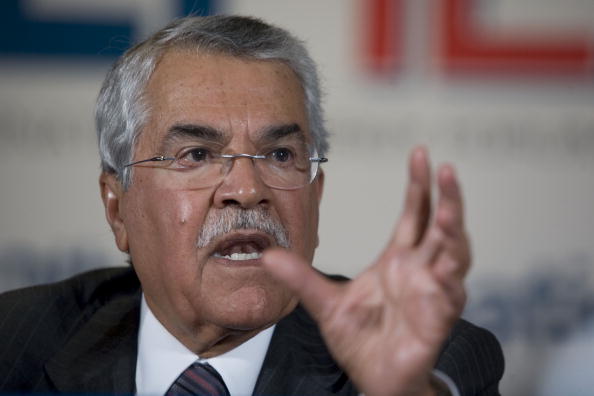Saudi Embraces US Oil Boom As Kingdom’s Output Steadies
KSA’s oil minister said it is good news that U.S. crude output has jumped to the highest level in around 20 years.

The oil minister of Saudi Arabia, the world’s top crude oil exporter, welcomed the U.S. energy renaissance on Tuesday but added that the boom in new global output may hold the kingdom’s production at current levels until the next decade.
“This is good news,” Ali al-Naimi said about the U.S. oil and gas production boom at the Center for Strategic and International Studies in Washington, in a speech billed as his first on energy in the United States in four years.
U.S. crude output, which has jumped to the highest level in around 20 years, will increase stability in global oil markets, Naimi said.
The rapid rise in U.S. oil and natural gas output has led some to believe Washington would end its reliance on Middle Eastern crude and perhaps ultimately loosen its military protection of the region’s oil shipping lanes as well.
“This talk of ending reliance is a naive, rather simplistic view,” Naimi said, adding that talk of energy independence “fails to recognize the interconnected nature of global energy markets.”
Even as Naimi spoke, evidence mounted that the U.S. drilling boom may be bigger than thought. The U.S. government said formations in the center of the country hold an estimated 7.4 billion barrels of technically recoverable oil, more than double the previous estimate from 2008.
Despite new output from the United States, Iraq, Brazil and elsewhere, Saudi Arabia remains the world’s main source of spare oil production capacity, of between 2.5 million and 3.5 million barrels per day.
By contrast, extra barrels from North Dakota and Texas will be consumed in the United States, at least until laws are changed to allow the country’s producers to export substantial amounts of crude.
Still, Saudi Arabia would be lucky to go beyond current production levels of about 9 million bpd by 2020, due to the new global supplies, Naimi said. Although the kingdom could produce 15 million bpd, the need to build new wells to hike output in coming years is not there, he said.
For decades Saudi Arabia and the United States had a special relationship: the kingdom provided the United States oil, and the United States provided Saudi Arabia protection against its foes.
While the American boom is bringing about an evolution in U.S.- Saudi energy relations, factors are also keeping them on track, analysts said. Those include robust Asian demand for Saudi oil and a combined goal in Washington and Riyadh of keeping oil prices from going too high in order to control Iran’s disputed nuclear program.
Naimi said early this month in Doha that nobody should fear new oil supplies when global demand is rising, adding that Asia’s population growth should be a driver for future oil demand.
“The Saudis don’t see the North American oil boom as a threat, not in the context of the global oil market,” said a Washington-based energy consultant to governments and businesses, who did not want to be named.
Regarding Iran, the United States is trying to choke funds to Tehran’s disputed nuclear program through the application of sanctions on its oil sales. High global crude prices could hurt that effort.
Saudi Arabia, a longtime foe of Iran, also does not want Iran to have nuclear weapons capability and is expected to help keep oil prices stable.
As part of the changing relationship, Saudi has been planning to buy tens of billions of dollars worth of U.S. military aircraft while turning to other oil customers.
“Saudi seems to be arming themselves on the assumption that they are going to have to play a larger role in their own defense,” said Chas Freeman, who served as U.S. ambassador to Saudi Arabia under former President George H.W. Bush.
“We are still partners, but less intimate partners than we once were,” Freeman said.
The U.S. military presence in the Persian Gulf will likely remain, but now it’s more about averting an oil price shock that would damage the economies of U.S. allies around the world and empower Iran.
“It’s a lot more about the global economy and Iran than it is about the Saudis per se,” said David Goldwyn, who led international energy affairs at the State Department.
